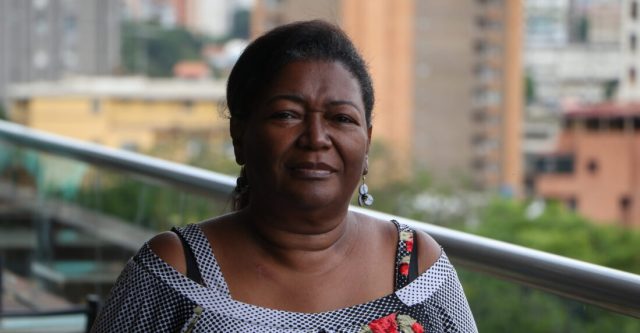
The education sector in Venezuela has been one of the hardest hit by Nicolás Maduro’s policies. This has motivated education professionals to initiate a series of street demonstrations that began last year and have continued to this date in 2023.
By Correspondent lapatilla.com
Starvation wages, non-compliance with labor benefits established in collective bargaining, schools with dilapidated infrastructure, without supplies and serious failures in basic services, are some of the complaints made by educators in every corner of the country.
Elsa Castillo, national leader of the Venezuelan Teachers’ Union, has become one of the main voices of teachers demanding salary and labor improvements. She recently described as “one more crookery” the presidential announcements of May 1st, where the long-awaited salary increase that could allow covering the basic basket, as established by the Constitution, was not granted.
She warned that, under this scenario, it is likely that the next school year cannot begin because the authorities cannot assume that teachers are slaves.
She affirmed that during the remainder of the school year the permanent assemblies will be resumed. Likewise, she pointed out that, beyond the protests, it is also necessary to exercise legal actions in national and international instances to recover the quality of the educational system in Venezuela.
Ms. Castillo was blunt in naming Maduro as the only person responsible for the deterioration of education in the country. In her opinion, the purpose of the Government is “to have functional illiterate professionals.”
– What have you obtained after 4 months of demonstrations in the streets?
A tan, a lot of sweat, a lot of discomfort, but also a level of awareness and we have removed the mask from Maduro who was telling the world that Venezuela had been fixed. Everyone already knows that Venezuela has not been fixed, that this was a “screen” made by some plugged-in people, who display countless things and that they are surely doing it with the Venezuelan people’s money, because the public treasury belongs to everyone, it does not belong to him or his political group.
– It seems that Maduro’s regime does not care about the education of Venezuelans. Under this premise, it seems difficult for him to meet your demands.
No, he is not going to comply with our demands because this is a man who has never done anything for education, not even for his own education. If he had done something for his own education, once he was chancellor (Foreign Minister), he would have had a modicum of concern and read something, getting a little familiar with what a chancellor should be and then, after acquiring the position of president, getting a little familiar with the office, with what a president should be, who should be fundamentally a statesman. That is to say, a man expert in the analysis and solution of the problems of the state. What is Nicolás Maduro? Well, he simply says that he is a worker, so someone, please, give him the mop and the rag so he can clean the student lounge.
– What do you think the administration of Nicolás Maduro is looking for with the deterioration and harassment of the teachers’ union?
Two things: One, that educators end by leaving the educational system and that they even leave the country; and the other, train people who may have a title (degree) but that is empty of content. For example, a bachelor who does not have the skills that a bachelor should have; a doctor, who is trained in three years, and who is not trained as a doctor, is not qualified to practice medicine. And if you check the other careers where they have put in their putrid hands, you will find that this is the result.
– What do you propose then to overcome the crisis in the educational, political, economic and social sector that the country is going through?
One, demand that the opposition be serious and actually carry out the policies that Venezuela needs. Two, ask citizens to resist, and resisting is not just saying: “I’m here in Venezuela” or “I’m going to start a business to eat,” it is also necessary for Venezuelans to start sharing knowledge and imparting knowledge. That is, if I am a teacher and I have some neighbors, I must help them improve their educational level. That is to say, we must go, as a form of resistance, towards the constitution of a non-formal educational system that guarantees us the training that the formal educational system is not going to guarantee.
– What is your biggest fear about education?
Having a Venezuela of ignoramuses, having a Venezuela with doctors who don’t know how to practice medicine, lawyers who can’t practice law, nurses who can’t give an injection. People with degrees but who are not prepared for it. I want a quality Venezuela.
– What subject should Nicolás Maduro currently take and why?
He should study citizenship training to see if he learns what citizenship is, the State, the division of powers, what the laws are because citizens have to respect the laws, know where the right of one citizen ends and the right of another begins, he should study all that.

